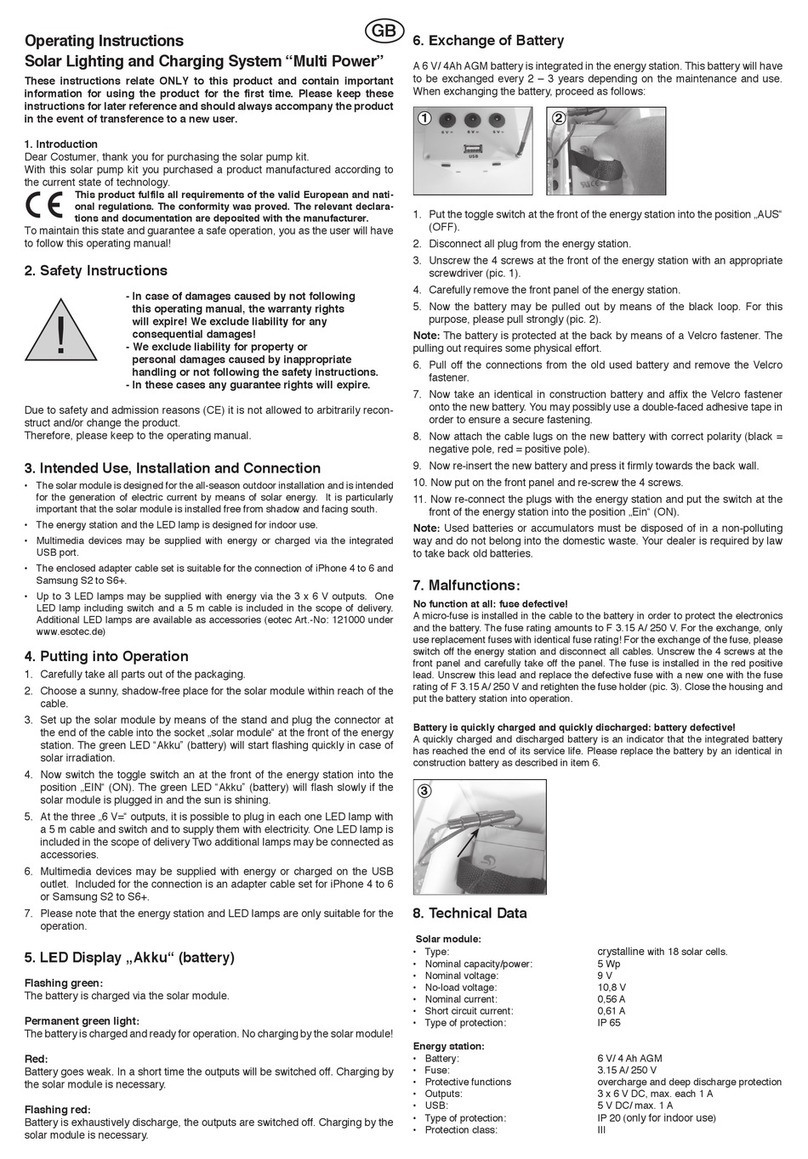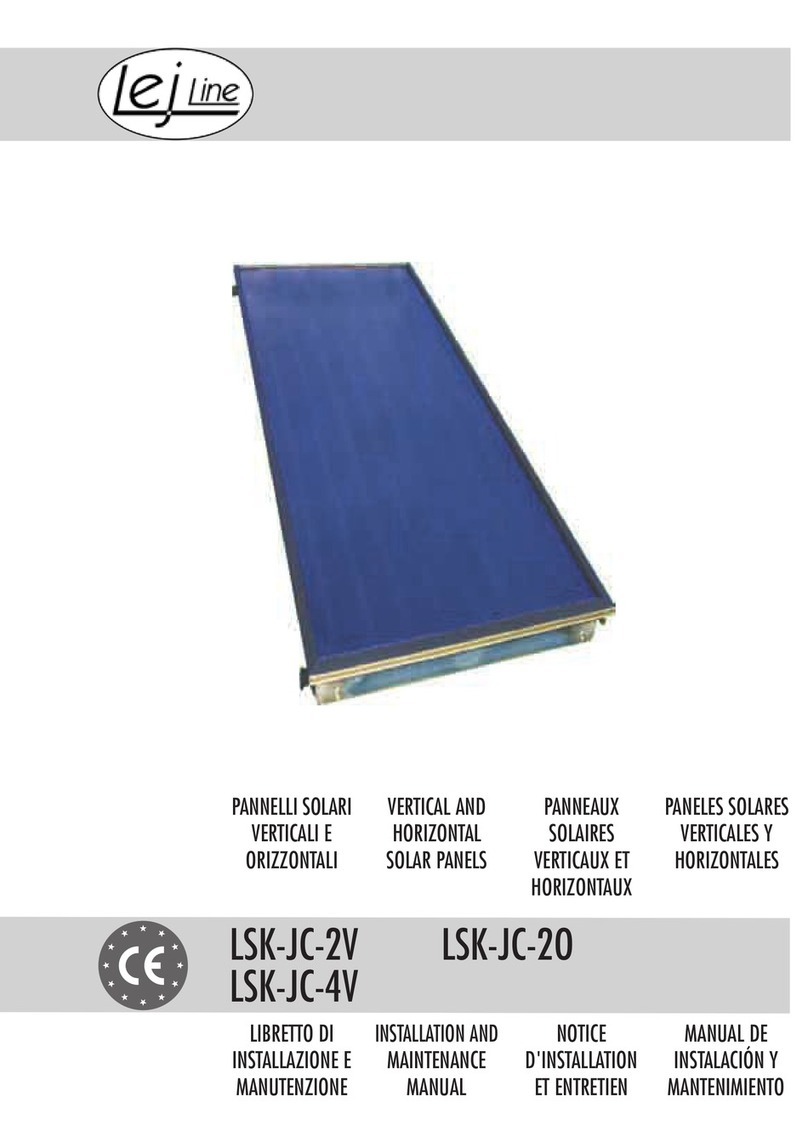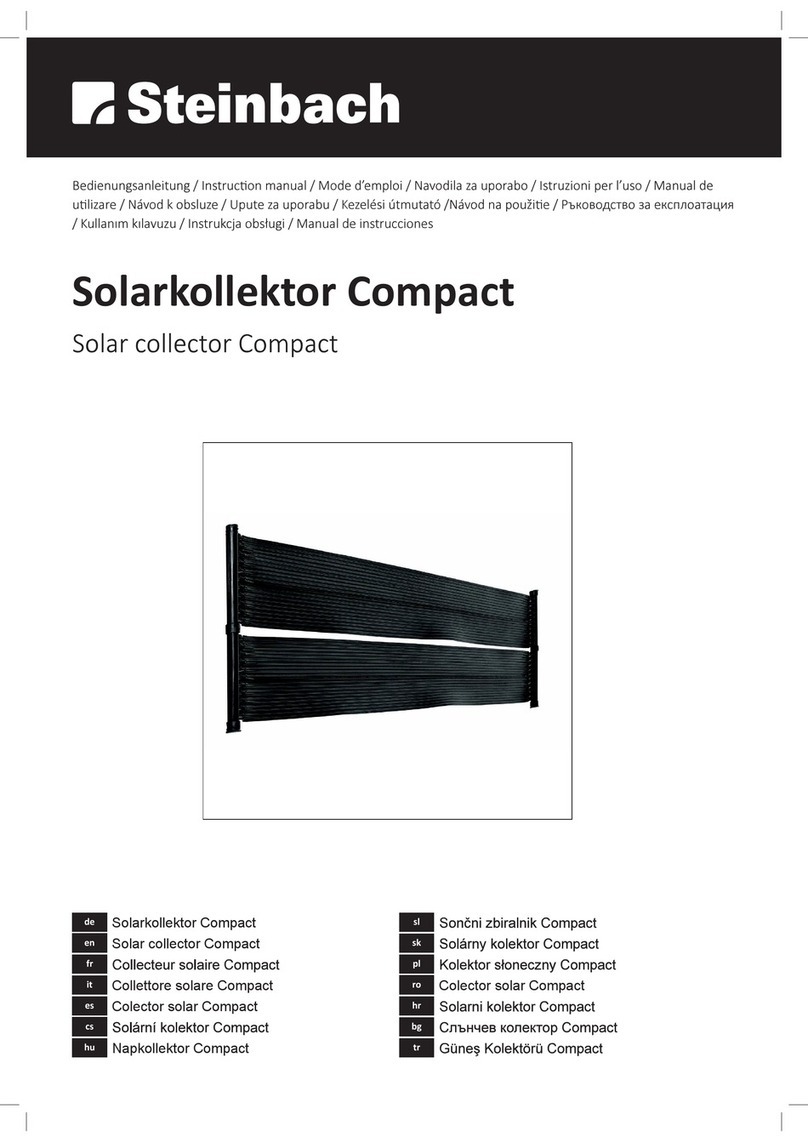Paua Air 300 User manual

Assembly Instruction
paua Air
*This is merely a convinience Translation in case of conict the german Version will persevere*
for paua Air 300/450/600/900

I. Prologu
II. Preparation and safety instruction
A. Before you star
B. Safety instruction
C. Parallel an series connection of solar mo ule
III. Assembly and installatio
A. Assembly instructions: step by ste
1. Attach the panels & connect them togethe
2. Connect micro inverter with the panel
3. Connect the micro inverter to the power cabl
4. Power cable into the socke
5. Install the app an monitor power pro uctio
IV. Appendix: Determination of the line reserve
Table of contents
1

I. Prologue
2
Congratulations on your paua olar et and the first step towards your self-
generated green solar power
Did you know that your paua Solar Set …
Have fun building, produce electricity and save the environment!
… not only produces electricity when the sun is shinning? Although this is of
course ideal, the devices also work under cloudy skies, rain or fog.
… generates virtually no maintenance? Nature usually does this by itself:
precipitation usually cleans the panels sufficiently. If it does get a little dirty, you
can simply wipe it off
… has a long life expectancy without relevant loss of performance? That's why
manufacturers also give long manufacturer and performance warranties. You can
find more details on the respective product page.
+ = – activate you home power plant!
Vitamin-D for your electricity bill!
Become a -saver & produce your own solar power!

II. Preparation and safety instructions
3
A. Before you start
B. Safety instructions
Find the area with the most sunlight and with suitable mounting option
Check if and where there is an electrical outle
If in doubt, consult with your landlord, as there may be requirements for the
visual design of balconies or facades - but as long as you do not permanently
change anything, you generally do not need permission and do not have to ask
anyone! Feel free to contact us via chat if you have any questions
You don't need an electrician because our inverter limits the power to 600W -
your paua Air is easily plugged in with a standard power cord.
Please read these instructions carefully before starting the assembly. Damage
caused by improper handling is excluded from any liability and warranty claims.
Be sure to keep the assembly instructions for future reference
You can also access them digitally on our website at any time
This manual describes the installation and operation of a grid-connected plug-in
solar system connected to the final circuit of a household. paua Air is designed
as a stand-alone plug-in solar system
It feeds self-generated energy of up to 300W (paua Air 300) or 600W (paua Air
600) into the final circuit of the connected household using the microinverter
supplied

4
Th s system s not ntended to be used by persons ( nclud ng ch ldren) w th
reduced phys cal, sensory or mental capab l t es, or lack of exper ence and/or
knowledge, unless they have been g ven superv s on or nstruct on concern ng
use of the equ pment by a person respons ble for the r safety
Children must be supervised at all times to ensure that they do not play with
the device
The components were produced under cons derat on of h gh qual ty and safety
requ rements. However, Paua Solut ons GmbH's warranty and l ab l ty do not
cover personal njury or damage to property result ng, for example, from one or
more of the follow ng causes:
Proper and safe operat on of the system requ res that all components and
accessor es are properly transported, stored, set up, mounted and operated.
Please nspect all components of your paua A r for poss ble damage before
nstallat on and operat on. Do not bend or stand on the panels. If th s occurs, do
not connect your paua A r and contact us. When nstall ng and operat ng your
paua A r, the nat onal legal regulat ons and the connect on cond t ons of the
network operator must be observed. In part cular DIN VDE V 0100-551-1 (VDE V
0100-551-1), VDE AR-N 4105:2018-11, DIN VDE 0100-712, DIN VDE 0100-410
and DIN VDE V 0628 (VDE V 0628-1).
Non-compl ance w th these assembly and nstallat on nstruct ons
mproper assembly, comm ss on ng, ma ntenance and operat on mproperly
carr ed out repa rs and transports, unauthor zed structural changes to the
system k
any damage caused by cont nued use of the system k t desp te an obv ous
defec
no use of or g nal spare parts and or g nal accessor es, mproper use of the
system k t, force majeure

5
Note that fo safe ope ation of the ci cuit, a esidual cu ent device (RCD) with
30 mA must be installed in acco dance with DIN VDE 0100-410 (VDE 0100-410).
Note that the plug-in sola powe system gene ates di ect cu ent when the e is
sufficient sunlight, which means that the plug-in sola powe system is live.
Please do not disconnect the cables when the system is live. Always disconnect
the powe plug fi st
Avoid touching the inve te when it is unde load, because the su face is hot and
it may cause bu ns
The cables must not be unde high tensile st ess o pe manently exposed to
liquids. Open plug connections must be fitted with a sealing cap
In gene al, sola systems a e conside ed to equi e ve y little maintenance. The
paua Ai Set does not contain any moving pa ts that equi e maintenance. The
inve te housing must not be opened and may esult in elect ic shock o death if
opened. In the event of any abno mality o i egula ity, disconnect the powe
plug and do not continue to use the unit. Do not make any independent epai s
o modifications to the plug sola system o othe pa ts of the system. Repai s
and maintenance may only be ca ied out by qualified pe sonnel. Howeve ,
pe fo m a visual inspection at least annually and check you paua Ai fo defects.
Be ca eful not to cause pe sonal inju y due to pa ts falling f om the system. Paua
Solutions GmbH assumes no liability fo the p ope installation of the system and
its mounting, especially when installed in o above public a eas. Do not install
you paua Ai in st ong wind, ain, da kness o simila distu bing weathe
conditions. Always install you paua Ai in pai s. At the end of you module's life,
the sola modules can be d opped off at the nea est ecycling cente so that
they can be ecycled.
Please note the info mation on dete mining the cable ese ve in the appendix to
these installation inst uctions. Technical and egulato y changes, misp ints and
e o s excepted.

6
What is a parallel connection
A parallel circuit connects the two plus and the two minus poles o the solar
modules with each other, or this the Y-cables are necessary (also called: solar
cable distributor or splitter)
In parallel connection, the currents (A) add up, but the voltage (V) remains the
same
What is a series connection
In series connection, two or more solar modules are connected to each other and
always the plus poles are connected to the minus poles. This adds up the
voltages (V) o the panels, but the current (A) remains the same.
C. Parallel and series connection of solar modules

paua ir 30
Connect the 2 panels with each other. The outer cables, marked red here,
remain free for the time being - these will be connected to the micro-inverter
later.
Connect the panels together
Vertical mounting
7
A. Step by step assembly instruction
III. Assembly & Installation
Aach the panels
Attach the panels to the outside of your balcony using the supplied fastening
straps. This step is best done in pairs, with one person holding the panels while
the other attaches them.

paua A r 60
Here, too, always connect only 2 panels with each other! Never connect all 4
panels together. The outer cables, marked red here, remain free for the time
being - they will be connected to the micro-inverter later.
Note: It doesn't matter if the cables are at the top or bottom. You can also mount
the panels so that the cables run along the bottom - however you want and
depending on what works better for you
Note: For the ideal efficiency, make sure that a set of 2 is oriented in the same
direction with the same solar radiation, if possible
Although we have equipped all panels with so-called by-pass diodes. However,
to minimize the shading effect, it is better if each set of 2 is facing the same
direction of the sun and is free from shading.
8

paua Air 450 & 90
In order to provide the optimal voltage and current for the inverter with paua Air
450 and paua Air 900, a combination of parallel connection and series
connection is recommended
Please connect the Y-cables with 2 modules first. The positive poles of the two
modules are connected to one Y-cable and the negative poles of the two solar
modules to the other Y-cable
The two modules are now connected in parallel and have a positive and a
negative pole as output
Now connect the remaining third solar module with the negative cable to the
positive cable of the two solar modules connected in parallel.
You have now connected the third module in series to the two previously
connected modules
9

Now you should still have two open ends. These are plus and minus and will be
connected to one side of the inverter in the next step
10
Note: Panel 3 should be oriented in the same sky/sun direction as Panel 1 or
Panel 2 for ideal values. So: if you place your system e.g. around the corner ,
make sure that panel 3 (which is connected in parallel to panel 1 + panel 2) is
oriented in the same direction as one of the other two. If only panel 3 is oriented
in a different direction, the shading of panel 3 or panel 1/panel 2 will have a
negative effect on the overall performance.

paua Air 90
If you have a set of 6 modules (paua Air 900), please repeat the circuit from the
previous step (paua Air 450) and connect it to the other side of the inverter
11

Horizontal mountin
f you prefer to mount your set horizontally, plugging it together follows the same
logic. The cables shown in red remain free:
Note: Use the supplied extension cable for this if necessary.
12
2.1 paua Air 30
Place or mount the micro inverter centrally between the 2 panels
You can use the supplied cable ties for this
Connect the micro-inverter with the matching outer, still free cables of the 2
connected panels.
f necessary, use a solar extension cable for this
2. Aach the micro-inverter and connect it to the panels

2.2 paua Air 60
Place the micro-inverter as centered as possible between the 4 panels as shown
in the figure:
13
2
1
Blue Circle
Now connect the outer two
cables of the left set of 2 to the
two left input connectors of the
inverter. For the outer cable
(marked green) you can use one
of the supplied extension cables.
Red Circle
Do the same with the right set of
2: Plug the two outer cables into
the other, still "free" side of the
inverter, into the matching inputs.
Use solar extension cables if
necessary.

2.3 pa a Air 450 & pa a Air 900
Connect the micro-inverter with the appropriate outer, still free cables as shown
in the diagrams below. If necessary, use the solar extension cables for this
purpose.
14
pa a Air 900
pa a Air 450

15
paua Air 300 / 600 / 450 / 900
Now take the supplied power ca le and plug it into the long power ca le of the
inverter (figure elow). Close the short ca le on the micro inverter with the
supplied sealing cap.
3. Connect the micro inverter to the power cable
“Klick!”
4. Power cord into the socket!
Now plug the mains ca le into the socket you have selected. Now the inverter is
connected to the grid and your solar set will produce electricity, provided there
is enough sunlight. Wait a it, it can take up to 15 minutes until the inverter
confirms the functionality.

16
5. Inst ll pp nd monitor power production
If you want to track with the app, please follow the separate step-by-step
instructions for configuring your app.
Now: Have fun producing your own electricity
If you need help or have any questions in the future, don't hesitate to ask us. You
See you soon, your paua team

IV. Appendix
Determination of the line reserve
17
The PI Photovoltaic Institute Berlin in cooperation with the German Society for
Solar Energy (DGS), the University of Applied Sciences (HTW) Berlin have
worked out in a study that it is possible to feed in up to 2. amps (approx. 00W,
equivalent to the paua Air Set) with plug-in solar devices in every household
with circuit breakers without any safety concerns, without having to make any
changes to the house electrics
However, there may be a deviation from the applicable standard for line loading.
We have described here how you can comply with the requirements of the
standard and how you can test your line
If the paua Air Set is fed into the existing final circuit, the current load on
individual cable sections may exceed the designed standard size. To prevent
overloading of the cables in the household, they are protected by a circuit
breaker (LSS). This switches off automatically as soon as an overload occurs. In
the leech, several sockets and consumers are protected by a common line
protection. Due to the additional power of the solar system, the currents from
the public power grid and the paua Air can now add up. However, the currents
are not detected by the LSS, so that an overload can theoretically occur
You can determine whether the existing line with your LSS is sufficiently
dimensioned using the following formula:


Pa a Sol tions Gmb
Ackerstr. 2
10115 Berli
German
In case of q ery: s pport@pa a.co
This manual suits for next models
3
Popular Solar Panel manuals by other brands
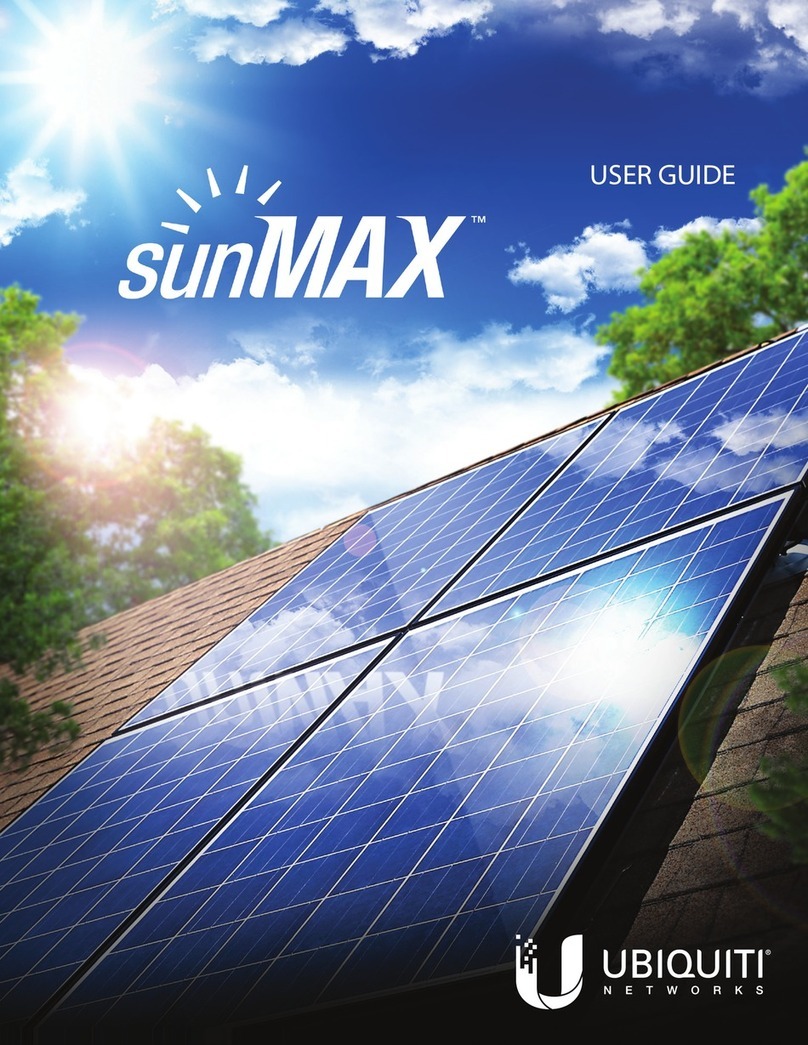
Ubiquiti
Ubiquiti sunMAX user guide

Steinbach
Steinbach Speedsolar instruction manual

Furrion
Furrion FURRIONNET-ZERO FSFP16MW-BL user manual
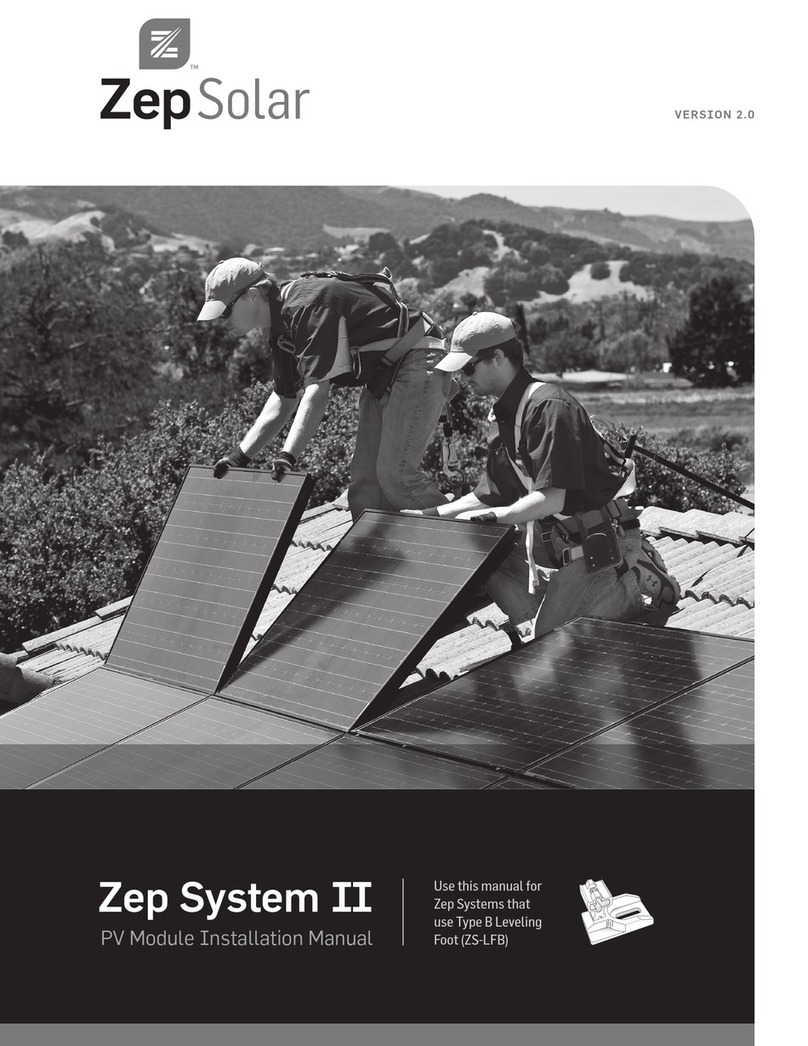
ZepSolar
ZepSolar ZEP SYSTEM II installation manual
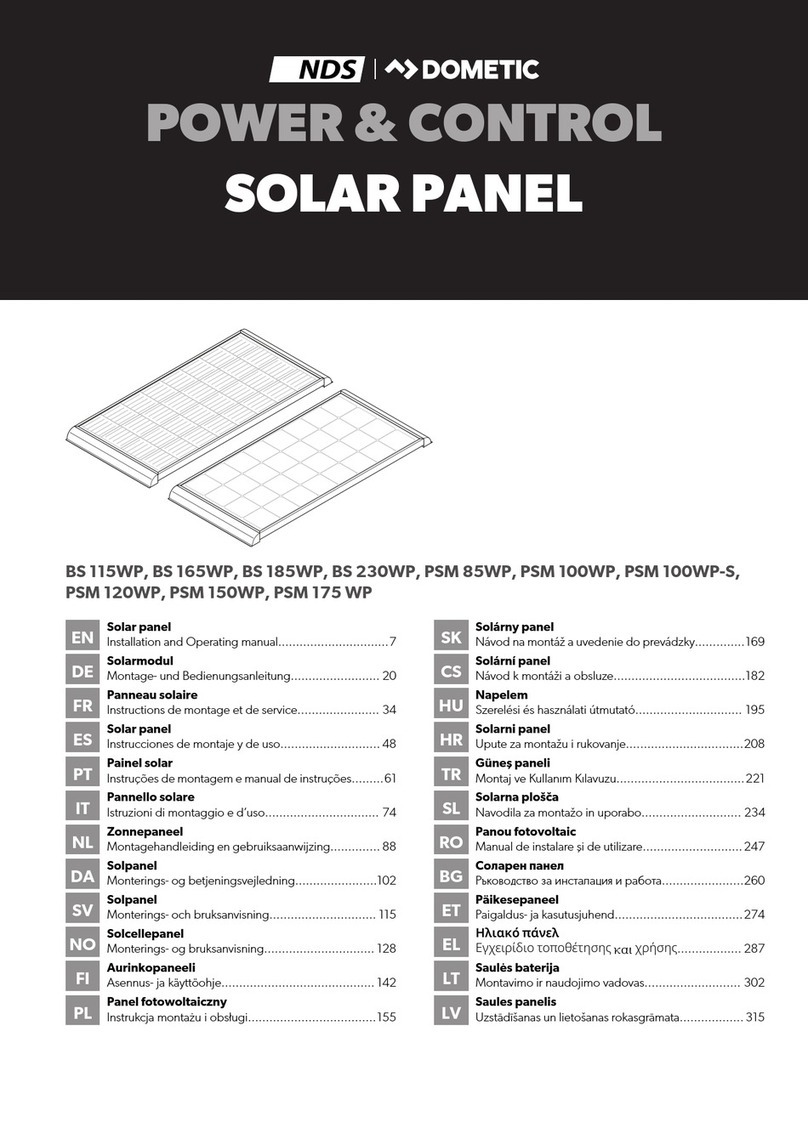
Dometic
Dometic NDS BS 165WP Installation and operating manual
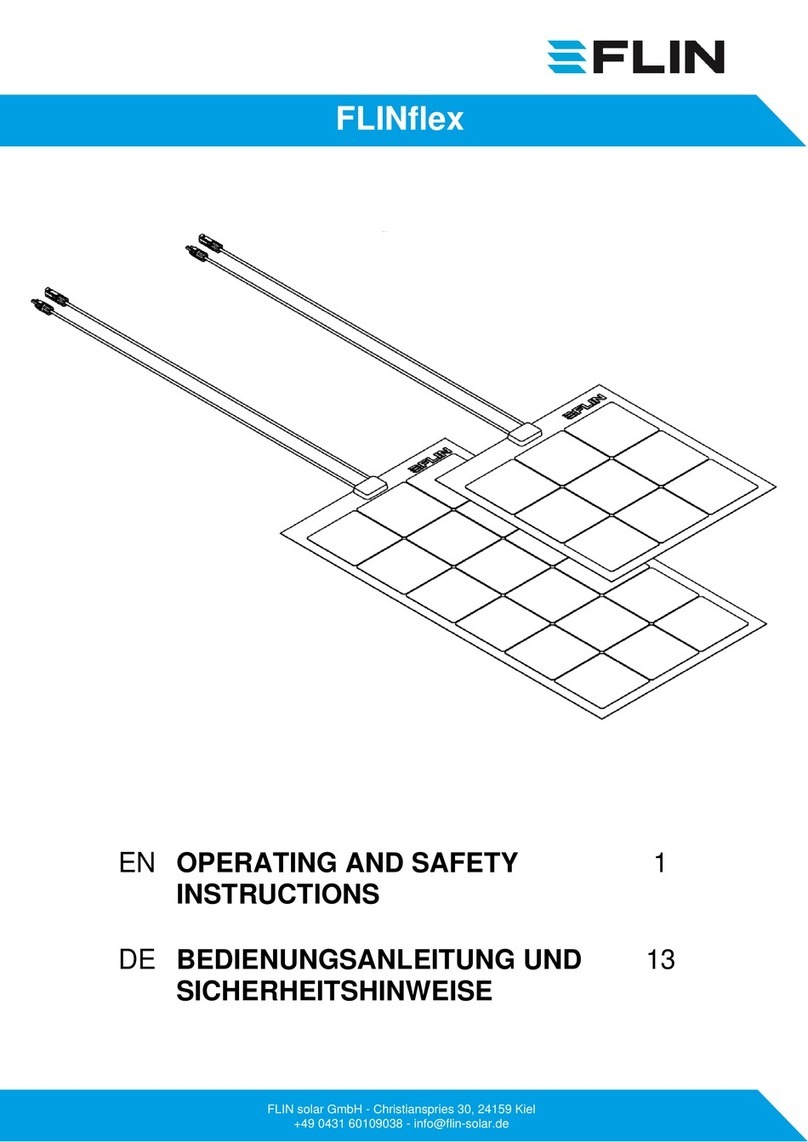
FLIN
FLIN FLINflex 50W Operating and safety instructions
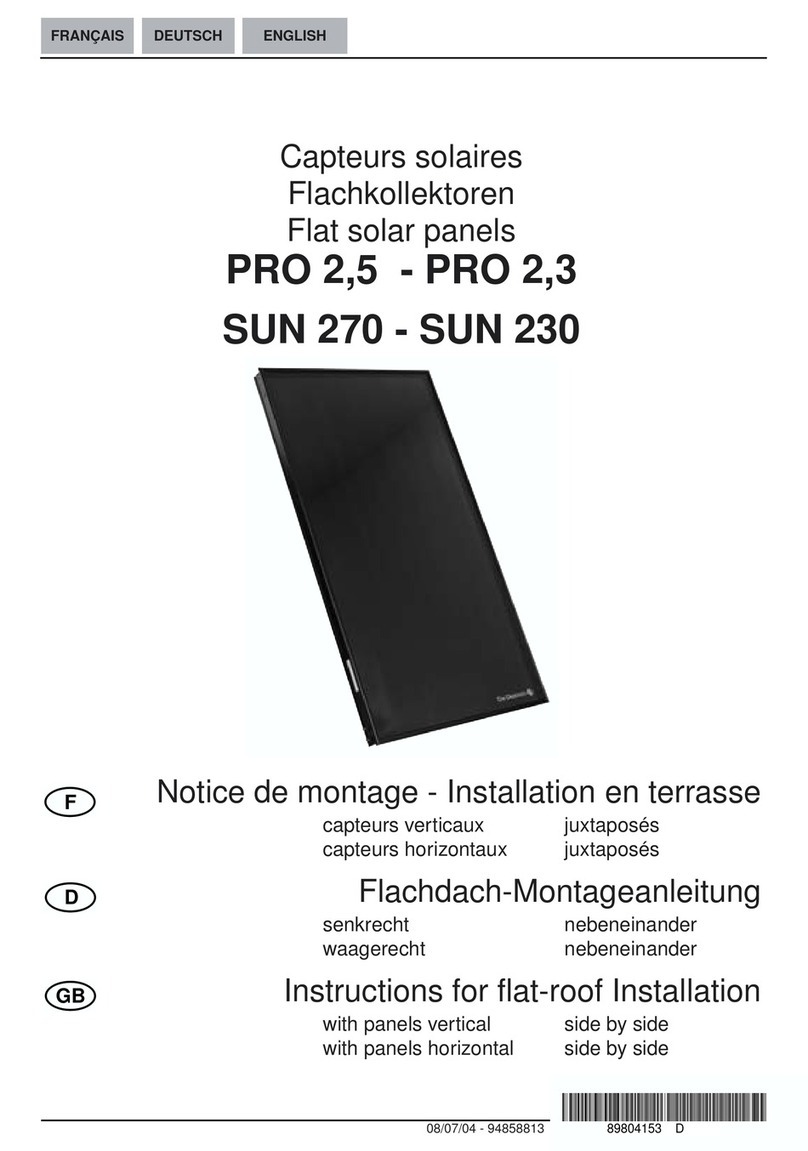
DeDietrich
DeDietrich PRO 2,5 instructions

Sunrise
Sunrise Aquaman SR-54MNHLPro Installation and operation manual
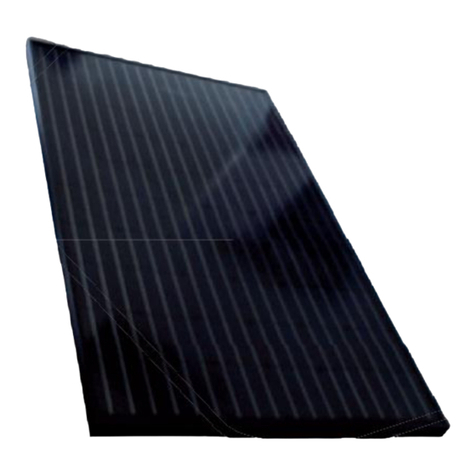
SOLUXTEC
SOLUXTEC PowerSlate Framed Mono Dark Blue Series user manual

Arlo
Arlo VMC4030 quick start guide

Chicago Electric
Chicago Electric 66369 Installation and service instructions
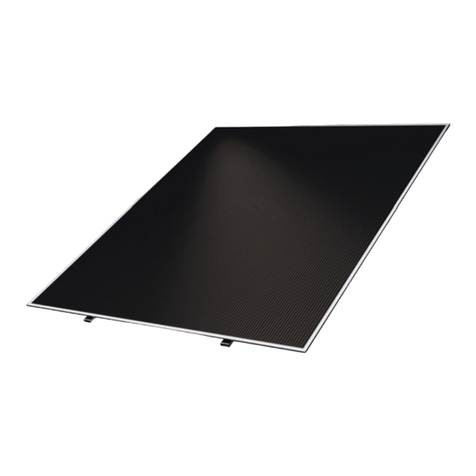
inventux
inventux X Series installation manual
